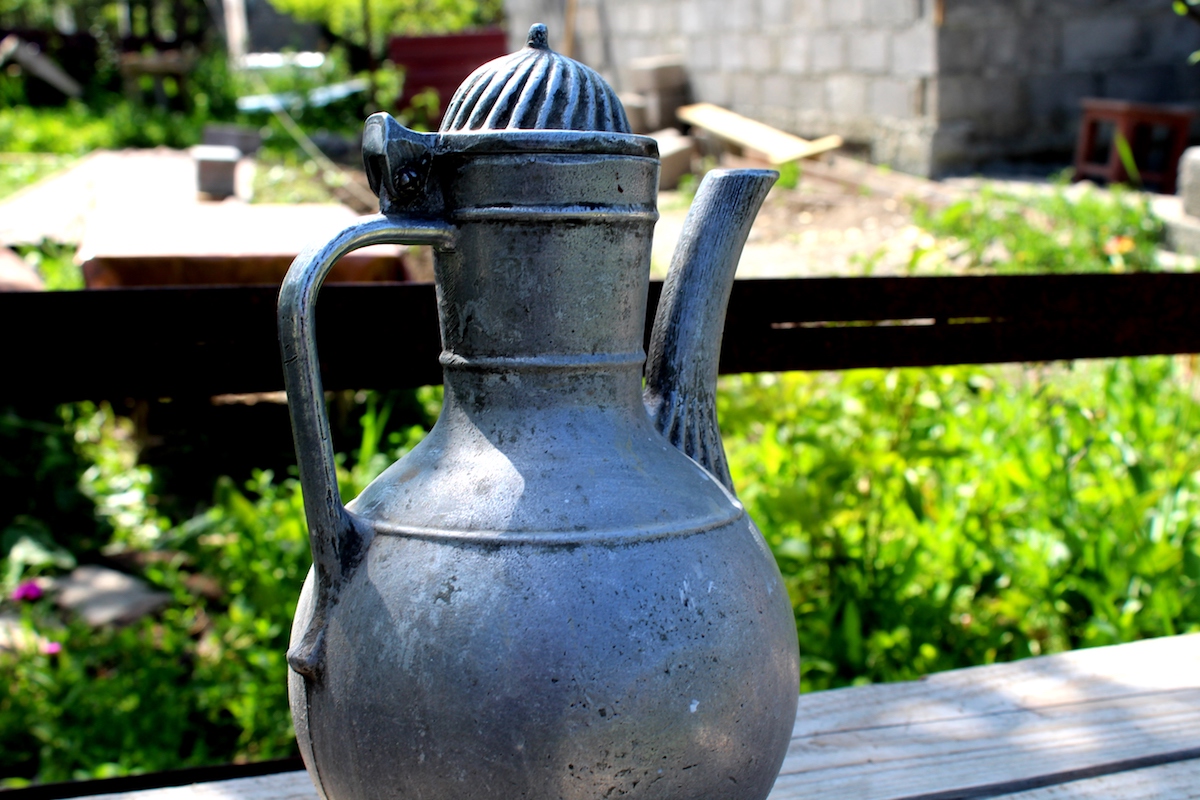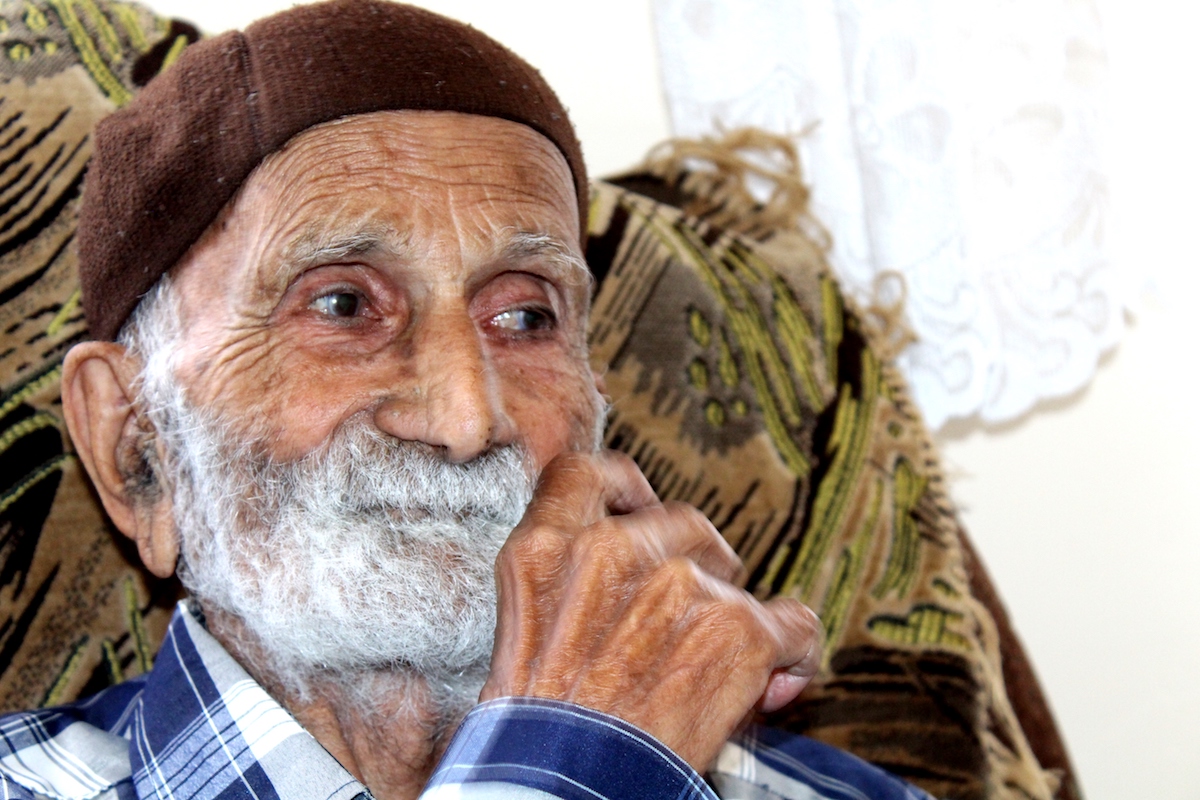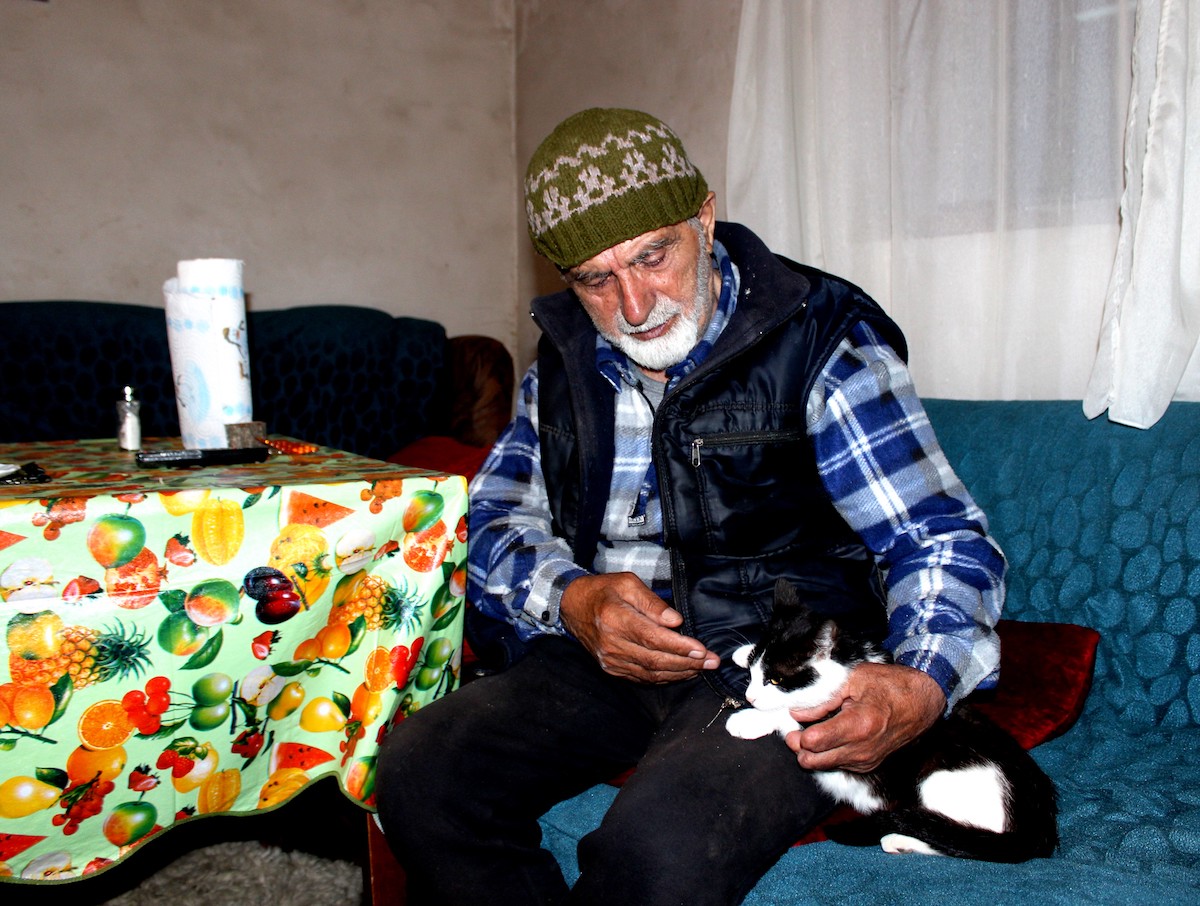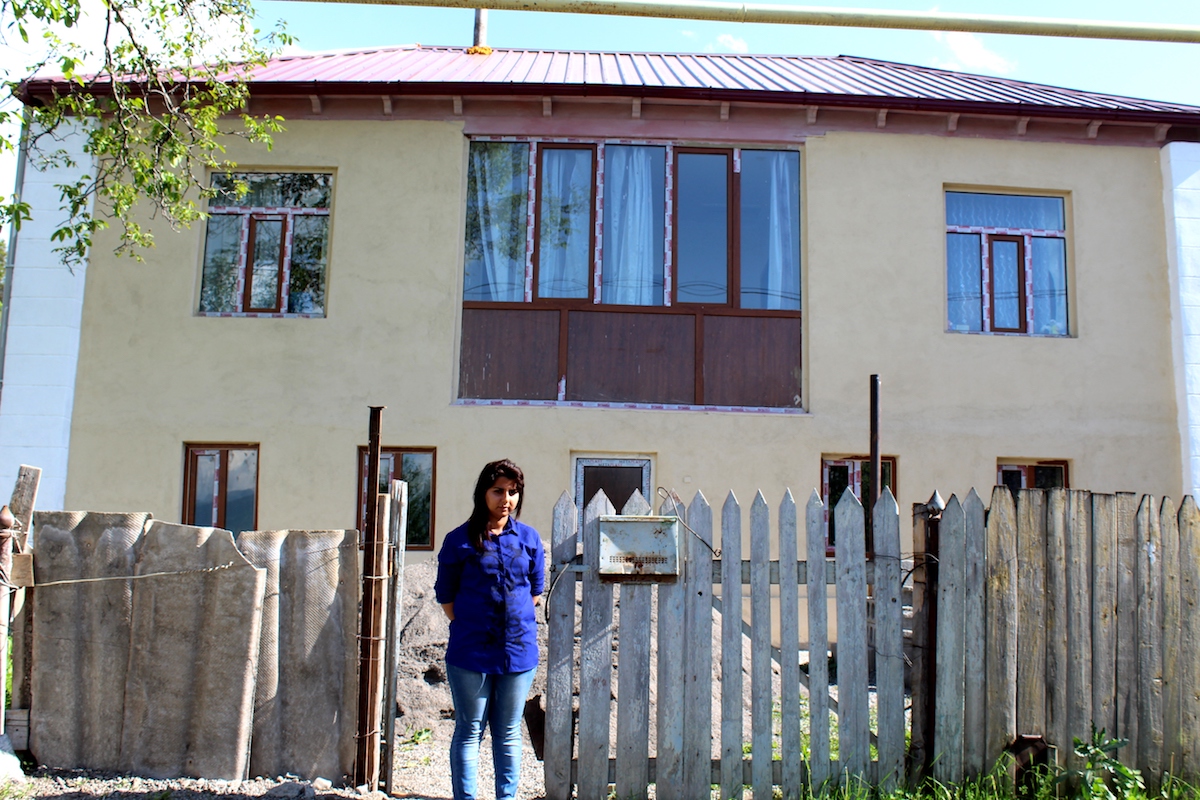Return from exile: Muslim Meskhetians from Georgia

An ethnic group referred to as the Meskhetian Turks, or the Muslim Meskhetians (also ‘deported Meskhetians’, according to terminology commonly used in Georgia), historically resided in the Meskheti region in South Georgia. In November 1944, 120,000 Mulsim Meskhetians were exiled from Georgia to Central Asia by order of Stalin.
Although repatriation and restoration of the repressed nations began in the USSR after Stalin’s death, it didn’t concern the Meskhetians. In the 1980s, some of them, especially those who lived in Uzbekistan, again became victims of persecution and pogroms (a term used to define large-scale rioting) on ethnic grounds. It was then that many of them moved to Russia, while others left for Azerbaijan and some other countries. Now, most of them are scattered around various post-soviet countries, some of them having immigrated to Turkey and the USA. However, no matter where the Meskhetians live now, they still feel estranged.
Deportation
There is a two-storey house with an iron gate, next to the road in Abastumani village. Building materials are piled up in the yard and the second-floor window is covered with a polyethylene film. There is a machine sound coming from the yard: Alihan Kuradze is processing boards, from which he is going to make doors. He is 81 and he started his life from scratch a couple of years ago. He is gradually rebuilding his house.
 Alihan Kuradze, 81, is rebuilding the house after his return from exile. Photo: Otar Atskureli, JAMnews
Alihan Kuradze, 81, is rebuilding the house after his return from exile. Photo: Otar Atskureli, JAMnews
Grandpa Ali, as the locals call him, was just 7 years old when he, together with his fellow villagers, was put on a freight car and sent far away from his homeland. He returned home only 6 years ago, at the age of 75.
Kuradze remembers only fragmented memories of the developments on that night of November 1944: “We were seated in trucks, the women were crying. We were taken to the railway and forced into freight cars. We traveled for 25 days. The space was too confined and we were starving. Several people in our car died on the way. We were brought to Uzbekistan and settled in various regions.” Alihan’s family was sent to the Fergana region.
“There was a severe winter in the area where we were settled. There was no food there, and the water wasn’t suitable for drinking. People died of water intoxication. That’s how my grandfather died. Shortly after that, we were allotted a cow as compensation.”
Alihan Kuradze spent 18 years in the Fergana region.
“Once I was asked at school about my nationality. I didn’t know who I was. So, I answered that I was a Caucasus native. But I was told that the Caucasus was big and there wasn’t such a nationality as a Caucasian. When I came home, I asked my mom who we were nationality-wise. She said that at first we were Georgians and later we became Muslims. At that time, I didn’t quite understand whether it was true or not. Since that moment though, I regarded myself as Georgian,” said Alihan.
Since that time, he has had to inquire into and prove his origin and nationality on a number of occasions.
Seyfat Dursunov, 94, shared the same fate as thousands of his compatriots. He repatriated to Georgia at the age of 88. He is a resident of Vale village. He has recently broken his leg and is bedridden now.

We weren’t even allowed to go from one village to another. I’d lived in one Uzbek village for 14 years, without ever leaving it. Every month we were required to sign documents testifying that we really resided there and had never left the place,” said Seyfat.
Before the deportation, he used to live in Utkisubani village, Adigeni district. He was 19 then, and he remembers everything pretty well.
“It was autumn. The soldiers arrived to help us harvest the crops. I knew a little bit of Russian, so I spent most of the time with them. But they didn’t tell me anything. One night we were woken up … We left everything there: our crops, 14 cows and a large two-storey house.”
He tells about his life in Uzbekistan: “The locals were afraid of us; they thought we were cannibals. But then we got used to each other, we visited each other, invited each other to wedding parties. On a side note, their wedding parties were quite fun – they danced and sang all the time, and they ate a lot.”
However, for the majority of Muslim Meskhetians, Uzbekistan turned out to be just a temporary shelter. The Meskhetians were persecuted again in the 1980s, during the pogroms on ethnic grounds in Uzbekistan. Later, they found refuge in Azerbaijan and Russia’s southern regions.
Repatriation to Georgia remained a cherished dream for many of them. Alihan and Seyfat changed their place of residence several times. At first, both of them settled down in Azerbaijan. Alihan lost one of his sons during that period of roving. “We walked through the Mugan Steppe. My brother got sick and died on the way,” said Gulo, Alikhan’s daughter, who lives with her father now. Both, Alihan and Seyfat, say they had been thinking of repatriation all the time.
All members of the Dursunovs and Kuradze families are of different nationality. Their nationality was registered in accordance with the country of birth. The graves of their parents and next-of-kin are scattered around several countries.
“Although life was much better in Azerbaijan, it still wasn’t my homeland. Actually, I didn’t have any homeland. When in the army, I was asked about my nationality. I was afraid of being ridiculed, so I said that I was an Azeri. They didn’t believe me, saying I didn’t look like an Azeri. Then I said, I was a Turk. But they didn’t believe it either, saying that I didn’t pronounce the Turkish words correctly. No one has ever accepted us. We’ve always been treated as outsiders,” said Alihan Kuradze.
The return
The Muslim Meskhetians started to return to Georgia at the end of the 1980s, when the Soviet Union was already on the verge of collapse. Alihan Kuradze was among the first returnees.
Initially, he settled down in Ozurgeti district, Western Georgia, whereas in 1989, he tried to return to his historical homeland, to Samtskhe-Javakheti, but he was ousted by the locals.

“It was May and it was raining all the time. I lived in a tent together with my family. We stayed there only for 30 days. One day we were attacked and our tent was destroyed. We were told: “Why on earth have you returned, what have you lost here?” They didn’t believe that our roots were here,” recalls Alihan.
“However, my father couldn’t set his heart to rest. For as long as I can remember, he had traveled to Moscow and Tbilisi all the time, seeking permission to return,” said Gulo Kuradze.
Like hundreds of other Meskhetians, Seyfat Dursunov had tried to get repatriation permission for years. “We appealed to different instances, but what we were told everywhere, was: ‘be patient, the time will come’.”
The process moved off the dead center in the early 2000s. Having joined the Council of Europe in 1999, Georgia assumed a commitment to repatriate the Muslim Meskhetians. Some particular moves were also made – a Law on the Repatriation of Deported People was passed in 2007, despite resistance from a certain part of the community.
Jamilya, a granddaughter of the Meskhetian Seyfar Dursunov, outside their new house in Vale, Georgia. Photo: Otar Atskureli, JAMnews
Those, who opposed repatriation of the Muslim Meskhetians argued that the country couldn’t render them financial assistance. In their opinion, the Meskhetians’ religion was another problem, since repatriation of the Muslims could trigger a conflict between them and the local Christians.
Meanwhile, the Meskhetians, who were scattered throughout different countries, started repatriating without permission. Seyfat Dursunov was the first who returned to the town of Gori, Georgia, without any permission. He expected the authorities would provide him with housing, but all his hopes were in vain and he soon returned to Azerbaijan.
In 2005, the Dursunov family traveled directly to Samtskhe-Javakheti, relying solely on themselves. They sold their house in Azerbaijan and started building a new house in Vale village. Twelve years have passed since that time. There is still a pile of sand for construction work outside their house. Seyfat is supported by his children, who live in Turkey and Azerbaijan. He shares the house with his daughter and a 24-year-old granddaughter, Jamilya.
Having failed to return to their homeland for the first time, Alihan Kuradze finally repatriated in 2011. In his words, much has changed since 1989. Both the Dursunov and Kuradze families note that the locals’ attitude towards them has changed in the course of time.
“The locals are different now, they know much more about us. They no longer show animosity. But they still regard us as outsiders, they call us the Tatars,” said Alihan.
The struggle for rights
Ten years have passed since the adoption of the Repatriation Law, but some of the Muslims Meskhetians still don’t have repatriate status. Fewer have been granted Georgian citizenship, which makes their living in the country even more complicated.
Being stateless people, they aren’t eligible for the public healthcare program. “They don’t have social and economic guarantees and property-related issues still remain a problem,” reads the Georgian Public Defender’s report for 2015.
Seyfat Dursunov was denied citizenship several times. Jamilya, 24, who attends pre-university courses at Samtskhe Javakheti University, and who is going to enroll in the business administration faculty, doesn’t have citizenship either.
The official statistics is as follows: a total of 5,841 individuals applied to Georgia for reintegration status over the past few years. Of these, 1 998 have been granted this status, and 494 people have received ‘conditional citizenship’ that implies that Georgian citizenship will take its effect immediately after they renounce the citizenship of another country.
As officials explain, people are usually refused to be granted this status and citizenship due to a lack of relevant documentation.
There are about 50 deported Muslim Meskhetian families in Samtskhe-Javakheti. Twenty of those families live in close quarters at the Akhaltsikhe freight station. The rest of the families reside in Vale, Adigeni and Abastumani.
Most of them returned to Georgia on their own. They purchased houses with their own money. They earn living through agriculture – cultivating fruits and vegetables on small pieces of land around their houses. The majority of them communicate in the Russian language; only the youth speak Georgian.
According to Tsira Meskhishvili, the Head of the Tolerance organization who has been dealing with the Muslim Meskhetians’ problems for years, Georgian authorities have just formally complied with the assumed commitments.
“However, there are also moral and social commitments. Those who return here should have a decent life, shouldn’t they? The law does not provide for that, and the state does not do anything either. If they were to have citizenship, they would tackle many problems themselves,” said Meskhishvili.



















